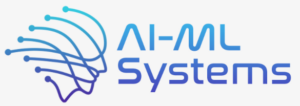Generative AI Workshop
Recent progress in generative models have resulted in models that can produce realistic text, images and video that can potentially revolutionize the way humans work, create content and interact with machines. The workshop on Generative AI at AIMLSystems will focus on the entire life-cycle of building and deploying such Generative AI systems, including data collection and processing, developing systems and requisite infrastructure, applications it enables, and the ethics associated with such technology covering concerns related to fairness, transparency and accountability. We invite original, unpublished work on Artificial Intelligence with a focus on generative AI and their use cases. Specifically, the topics of interest include but are not limited to:
- Systems, architecture and infrastructure for Gen AI
- Foundation models and their applications
- Multi-modal Gen AI
- Retrieval Augmented Generated
- Gen AI based plugins and agents
- Learning from human preferences
- Evaluation of foundation models
- ML Ops for Gen AI
- Instruction tuning and instruction following
- Responsible Gen AI
- Large language model performance benchmarking
- Anupam Purwar, Senior Research Scientist, Amazon
- Hiteshi Sharma, Researcher II, Microsoft Research
Submission Guidelines
We invite authors to submit original and unpublished research papers (up to 4 pages excluding references). All submissions will undergo a rigorous peer-review process by the program committee. The authors are requested to follow the ACM sigconf template (see https://www.overleaf.com/gallery/tagged/acm-official). All accepted papers will be published in the proceedings of AIMLSys 2024.
Submission link: (please select the GenerateAI Workshop AI track).
Important Dates
- Paper Submission Deadline: 15 June 2024
- Notification of Acceptance: 24 Aug. 2024
- Camera-Ready Deadline: 21 Sept 2024 (AoE)
- Workshop Date: 11 Oct. 2024
Workshop Organization
The workshop will feature keynote speeches, technical paper and poster sessions, tutorials and possibly panel discussions. A detailed outline of the program would be available on the website shortly. The workshop would also provide ample opportunities for attendees to network with leading experts and well gain hands-on experience on Generative AI from tutorial sessions.
Registration
At least one author of an accepted paper will need to register for the conference and in case of multiple papers with the same author, co-authors need to register (1 unique registeration by one of the authors per paper is required).
Keynote Speakers
We will update this page with details of keynote speakers soon.
Workshop Venue
Louisiana State University, Baton Rouge, USA
Contact Information
For any inquiries regarding the workshop, please feel free to contact the workshop organizers.
————————————————
Program Committee in alphabetical order:
Anupam, Hiteshi
Reviewers:
Last year: 50 submitted, 20 received
Number of reviews for a paper: 2-3
Anupam has list of reviewers from last year + some groups
